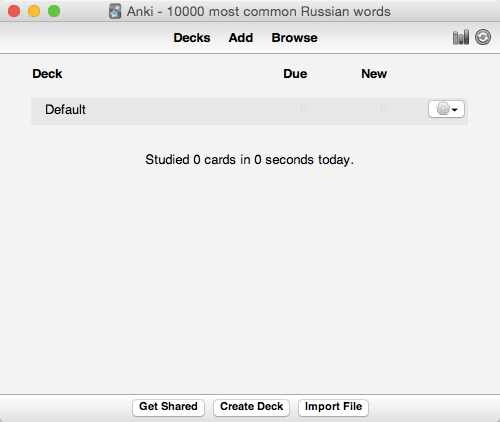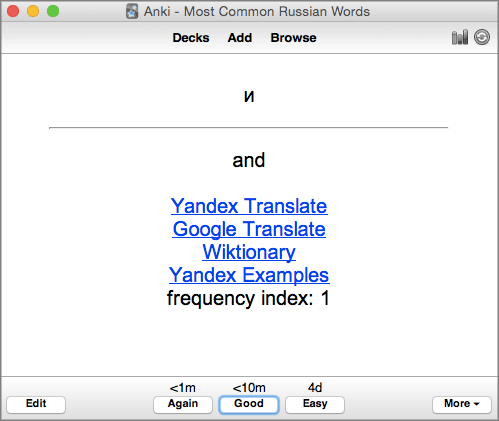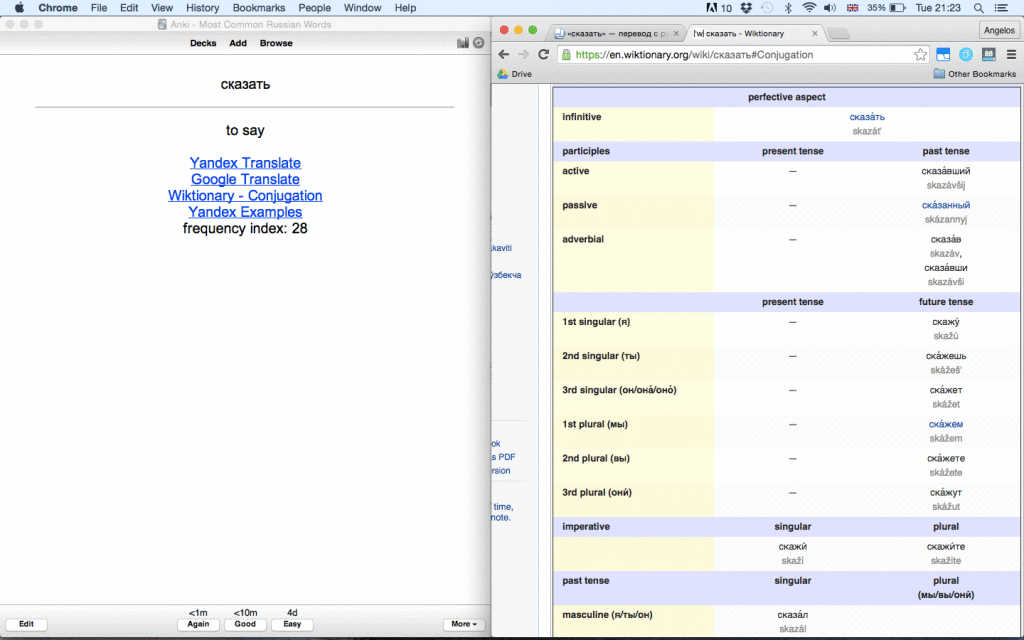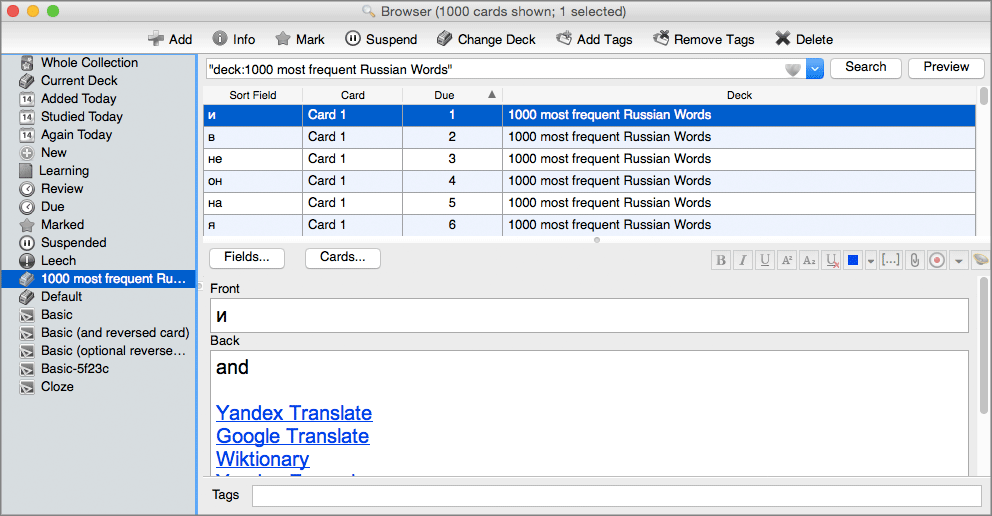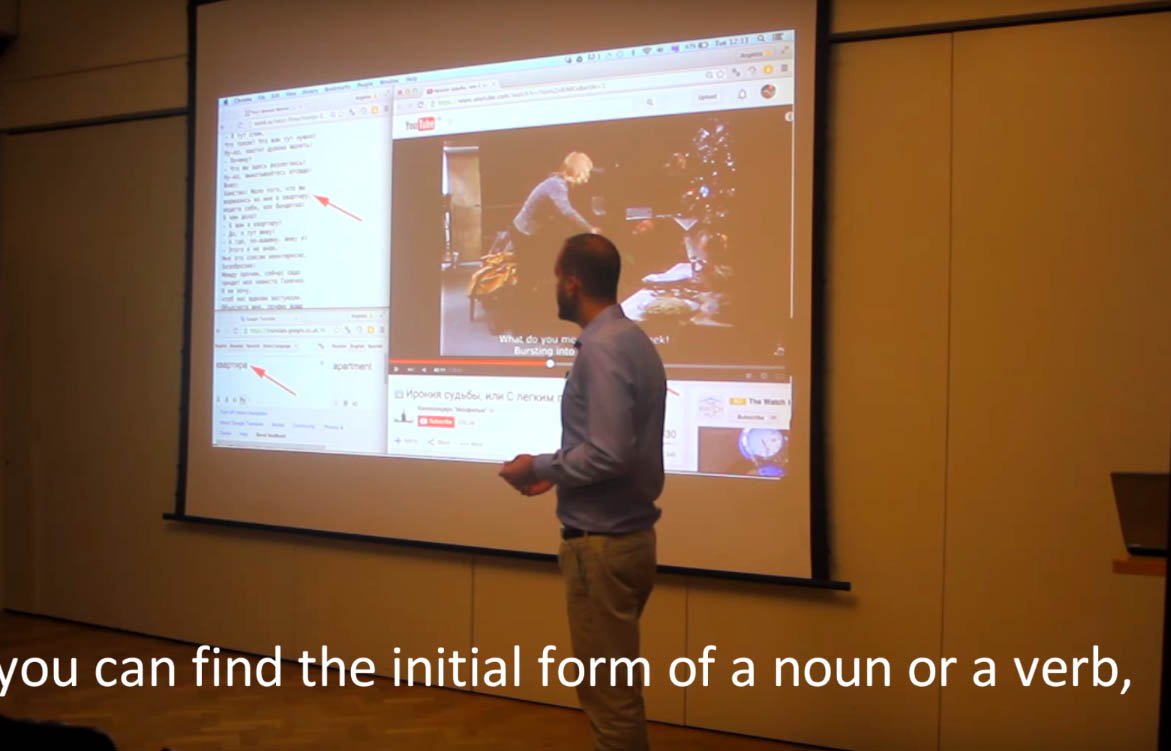The keyword mnemonics technique uses keywords and mental images to associate verbal material. For example, let’s say you want to memorize the French feminine noun affiche that means poster in English. For this, you could imagine a feminine looking fish attaching a poster to the wall.
This technique has become increasingly popular lately. It is also the core learning strategy of Memrise, an online language learning platform. Memrise was founded by the memory champion and author Ed Cooke.
I hadn’t practised this technique until I came across Memrise. I started fanatically creating mental images and keywords to memorize words in Russian. I realized that not every word is easy to tackle with mnemonics. However, I managed to use my imagination and come up with some surreal mental images that helped me to memorize a few Russian words. I got really excited! “This technique is gold”, I thought!
However, we have to be careful with how we arrive to “cause-and-effect” conclusions. Do I successfully remember these words because of the mnemonics per se, or because of the repetition of the retrieval process? In fact, I was over excited to confirm that this method works, so I kept going back to recall the mnemonics from my memory (retrieval process or self-testing). In that case, maybe it was the repeated retrieval process that helped me to memorize the targeted words.
For this reason, I decided to dig deeper into research. I found that lots of studies show a benefit of the mnemonics in the short-term, i.e. when someone is tested soon after a study session. However, when targeted words are not keyword-friendly, or someone receives delayed tests on them, the benefits vanish.
Hall (1988) conducted several experiments and showed that a control group outperformed the mnemonics group on English words that were not keyword friendly. Even when the mnemonics group was given the keywords, i.e. they didn’t have to waste time generating them, the control group performed better.
Condus, Marshall, Miller, Raugh & Atkinson (1975) investigating the long-term benefits of the mnemonics, they included a test soon after the practice and one after a longer delay of several days, or even months. These studies showed a benefit of the mnemonics method for both the immediate and delayed tests.
However, the promising results of the later research were compromised by the design of the experiments as the exact same groups were tested both on the immediate and the delayed tests. Given that the mnemonics group showed increased performance on the immediate test, this initial successful recall could have boosted the performance on the delayed test. In other words, the advantage in the delayed test performance for the mnemonics group could have been due to the retrieval practice (immediate test) and not due to the mnemonics per se (It is known that retrieval practice slows forgetting.)
For this reason, researchers tested different groups on the immediate and delayed tests. The results below show that although the mnemonics group outperformed a rote repetition (repeated study) group on the immediate test, the benefits on the delayed test vanished for those who received only the delayed test.
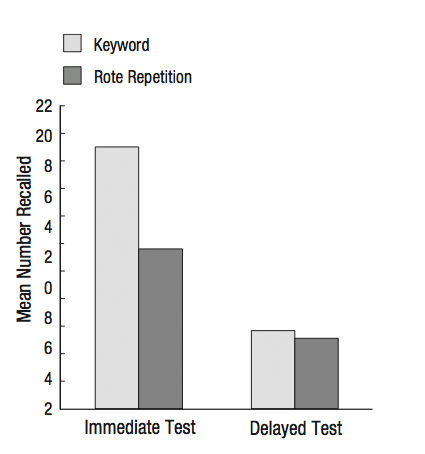
In a second experiment, after researchers nearly equated the performance of the two groups on the immediate test by giving more training to the rote repetition group, the repetition group performed much better than the mnemonics group on the delayed test as shown on the chart below:
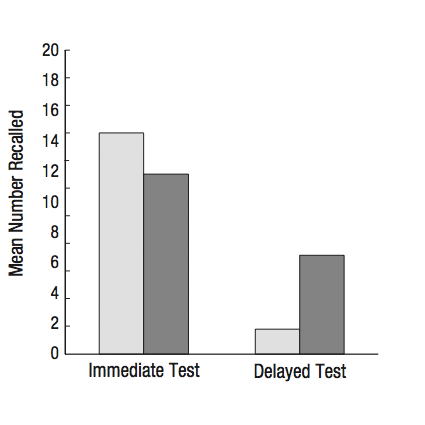 This shows that the mnemonics are not as effective for long-term retention. This is probably because it gets harder to decode the mnemonic if lots of forgetting has occurred . For example, for the feminine looking fish we have lots of target words, “fish”, “poster”, “wall”, “feminine” etc. Which of these words corresponds to what?
This shows that the mnemonics are not as effective for long-term retention. This is probably because it gets harder to decode the mnemonic if lots of forgetting has occurred . For example, for the feminine looking fish we have lots of target words, “fish”, “poster”, “wall”, “feminine” etc. Which of these words corresponds to what?
Apart from the long-term retention disadvantage of the mnemonics, their critics also report the following:
- Time is needed to train someone to generate appropriate mnemonics.
- Time is needed to generate keywords and mental images.
- There is no evidence that mnemonics are superior to traditional self-testing or repetition of study.
- Mnemonics are limited in terms of learning domain to foreign languages. Even within that domain, not all the material is keyword friendly, i.e. it is not always easy to create keywords.
Going back to Memrise, Ed Cooke and his team, apart from mnemonics, rely heavily on repeated retrieval practice using sophisticated algorithms. So, their system throws you a certain word several times spaced with intervals that are optimized for effective learning.
As a conclusion, you should use mnemonics for keyword-friendly words when you learn a foreign language but make sure you refresh them frequently in your memory. In general, testing and spaced practice are proven methods that promote effective, long-term and durable learning. Stay tuned, I will soon come back with more interesting results…


